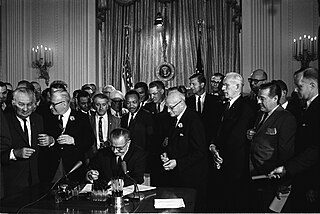The Community Capacity Development Office (CCDO) was an office of the United States Department of Justice and a component of the Office of Justice Programs. The mission was to work within local communities to reduce crime and improve the quality of life.
The office oversaw and funded the Weed and Seed program which was established in 1991, which works to reduce drug abuse, violent crime and gang activity in high-risk neighborhoods. The 'Weed' aspect of the program is to remove all the negative influences in communities. The 'Seed' portion of the program is to bring in new influences that help promote a better quality of life through rehabilitation programs. The Weed and Seed program is no longer funded by Federal tax dollars, but its model is used in different community based programs. There are over 300 Weed and Seed locations across the country.
The CCDO was headed in the early 2000s by Dennis E. Greenhouse, formerly County Executive of New Castle County, Delaware.
The International Economic Development Council (IEDC) is an officially designated Weed and Seed technical assistance provider in areas of economic development and neighborhood restoration. Through a grant from the Department of Justice, IEDC helps Weed & Seed communities initiate efforts to bring in new investment and economic opportunities to their neighborhoods. IEDC's assistance is at no cost to the community.
For a sample of The Weed and Seed Strategy program, please see:
https://www.ncjrs.gov/pdffiles1/207498.pdf
Due to lack of federal funding, the Community Capacity Development Office closed June 5, 2011. However, as of 2925, some communities continue to have the Weed and Seed program, by funding it with other resources.

The Great Society was a series of domestic programs enacted by President Lyndon B. Johnson in the United States from 1964 to 1968, with the stated goals of totally eliminating poverty and racial injustice in the country. Johnson first used the phrase in a May 7, 1964, speech at Ohio University. Major new federal programs addressing civil rights, education, medical care, urban problems, rural poverty, and transportation were launched. In scope and sweep, the Great Society was comparable to the 1930s New Deal domestic programs of previous Democratic president Franklin D. Roosevelt.

The Violent Crime Control and Law Enforcement Act of 1994, commonly referred to as the 1994 Crime Bill, or the Clinton Crime Bill, is an Act of Congress dealing with crime and law enforcement; it became law in 1994. It is the largest crime bill in the history of the United States and consisted of 356 pages that provided for 100,000 new police officers, $9.7 billion in funding for prisons which were designed with significant input from experienced police officers. Sponsored by U.S. Representative Jack Brooks of Texas, the bill was passed by Congress and signed into law by President Bill Clinton. Then-Senator Joe Biden of Delaware drafted the Senate version of the legislation in cooperation with the National Association of Police Organizations, also incorporating the Assault Weapons ban and the Violence Against Women Act (VAWA) with Senator Orrin Hatch.

The U.S. Economic Development Administration (EDA) is an agency in the United States Department of Commerce that provides grants and technical assistance to economically distressed communities in order to generate new employment, help retain existing jobs and stimulate industrial and commercial growth through a variety of investment programs. EDA works with boards and communities across the country on economic development strategies.
The National Institute of Justice (NIJ) is the research, development, and evaluation agency of the United States Department of Justice (DOJ).

The Office of Community Planning and Development is an agency within the United States Department of Housing and Urban Development (HUD). The office administers the grant programs that help communities plan and finance their growth and development, increase their capacity to govern, and provide shelter and services for homeless people. HUD is a national program, and HUD provides funding directly to larger cities and counties, and for smaller cities and counties, generally to state government. HUD's programs include the Community Development Block Grant Program and the HOME program.
The term "sustainable communities" has various definitions, but in essence refers to communities planned, built, or modified to promote sustainable living. Sustainable communities tend to focus on environmental and economic sustainability, urban infrastructure, social equity, and municipal government. The term is sometimes used synonymously with "green cities," "eco-communities," "livable cities" and "sustainable cities."

The Bureau of Justice Assistance (BJA) is a component of the Office of Justice Programs, within the United States Department of Justice. BJA provides leadership and assistance to local criminal justice programs that improve and reinforce the nation's criminal justice system.
Citizen Corps is a program under the Department of Homeland Security, founded in 2002 as part of the USA Freedom Corps, that provides training for the population of the United States to assist in the recovery after a disaster or terrorist attack. Each local Citizen Corps Council partners with organizations, volunteers and businesses to organize responders, volunteers and professional first responders for an efficient response so efforts are not wasted by being duplicated. By training in Incident Command, volunteers know whom to report to and how the incident is organized. This prevents sites from being inundated by untrained and unprepared personnel preventing operation. Citizen Corps also works in conjunction with the Corporation for National and Community Service in promoting national service opportunities for promoting homeland security needs.

Gulfton is a community in Southwest Houston, Texas, United States3.2 sq mi (8.3 km2). It is located between the 610 Loop and Beltway 8, west of the City of Bellaire, southeast of Interstate 69/U.S. Highway 59, and north of Bellaire Boulevard.
The Milton S. Eisenhower Foundation is a non-governmental organization in the United States, established in 1981 to continue the work of two Presidential Commissions. These commissions were the bipartisan National Advisory Commission on Civil Disorders, and the bipartisan National Commission on the Causes and Prevention of Violence. The Eisenhower Foundation carries forward the objectives and initiatives of these commissions in the private sector.

The New Jersey Department of Community Affairs is a governmental agency of the U.S. state of New Jersey.

The United States and North Macedonia enjoy excellent bilateral relations.

In the United States, subsidized housing is administered by federal, state and local agencies to provide subsidized rental assistance for low-income households. Public housing is priced much below the market rate, allowing people to live in more convenient locations rather than move away from the city in search of lower rents. In most federally-funded rental assistance programs, the tenants' monthly rent is set at 30% of their household income. Now increasingly provided in a variety of settings and formats, originally public housing in the U.S. consisted primarily of one or more concentrated blocks of low-rise and/or high-rise apartment buildings. These complexes are operated by state and local housing authorities which are authorized and funded by the United States Department of Housing and Urban Development (HUD). In 2020, there were one million public housing units. In 2022, about 5.2 million American households received some form of federal rental assistance.

The International Economic Development Council (IEDC) is a non-profit membership organization serving economic developers. With more than 4,500 members, IEDC is the largest national and global organization of its kind.

The Office of Fair Housing and Equal Opportunity (FHEO) is an agency within the United States Department of Housing and Urban Development. FHEO is responsible for administering and enforcing federal fair housing laws and establishing policies that make sure all Americans have equal access to the housing of their choice.
Charles Anthony Franco is an American politician. He was a game warden, police officer, Undersheriff for Doña Ana County, Judge on the Dona Ana County Magistrate Court, and the First Gentleman of New Mexico.
The Regional Cities Initiative is a program within Indiana counties that aims to attract talent through quality-of-place initiatives and improve skilled worker retention.

The White House Initiative on Asian Americans, Native Hawaiians, and Pacific Islanders (WHIAANHPI) is a United States governmental office that coordinates an ambitious whole-of-government approach to advance equity, justice, and opportunity for Asian Americans, Native Hawaiians, and Pacific Islanders. The Initiative collaborates with the Deputy Assistant to the President and AA and NHPI Senior Liaison, White House Office of Public Engagement and designated federal departments and agencies to advance equity, justice, and opportunity for AA and NHPIs in the areas of economic development, education, health and human services, housing, environment, arts, agriculture, labor and employment, transportation, justice, veterans affairs, and community development.

The National Center for Victims of Crime (NCVC) is an American 501(c)(3) nonprofit organization dedicated to providing information, resources, and advocacy for victims of all types of crime, as well as the people who serve them. The National Center for Victims of Crime hosts the annual National Training Institute, designed to share current research and effective policies with service providers, in order to advance the quality of services available to victims of crime.
Community crime prevention relates to interventions designed to bring reform to the social conditions that influence, and encourage, offending in residential communities. Community crime prevention has a focus on both the social and local institutions found within communities which can influence crime rates, specifically juvenile delinquency.